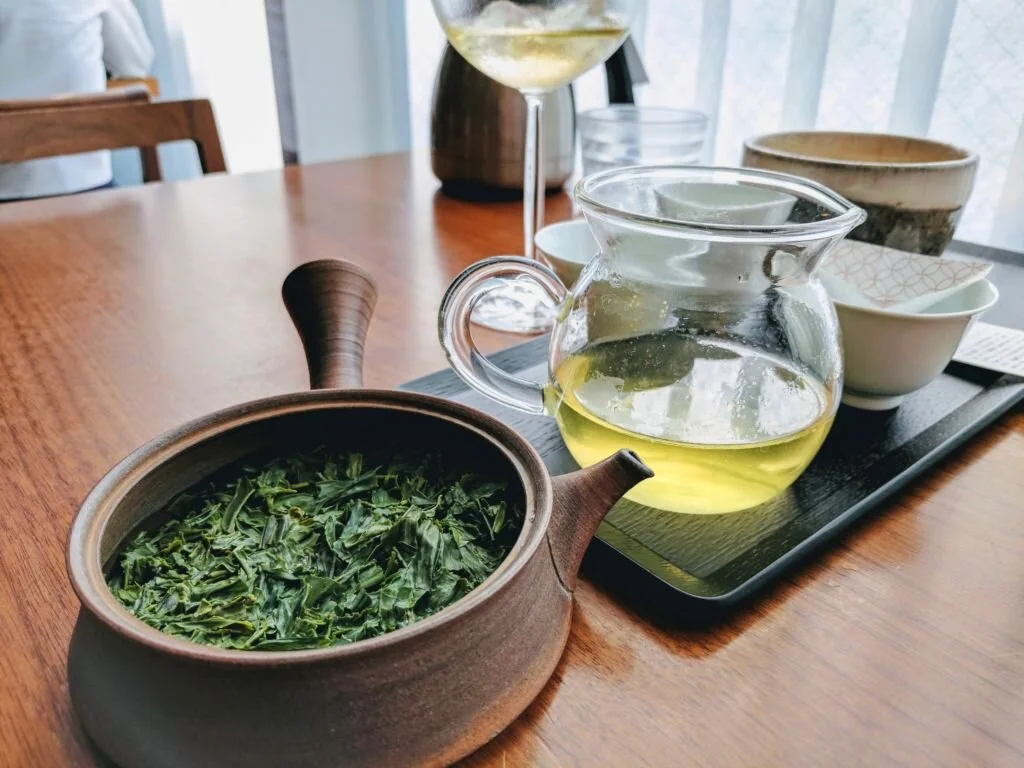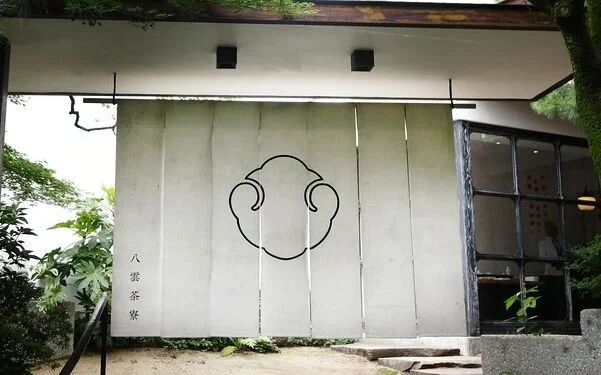Tokyo: The 10 Essential Places for Tea
Updated for 2020
This hardly needs stating, but even so: Tokyo is a city like no other. The sheer density of food and drink around every corner, in every alleyway, and under every bridge is insane. I mean, how does a cafe with 12 seats, on the 8th floor of a gigantic department store stay alive? Moreover, how do people even know about it? The cuisine, in some small part, and the culture, in large part, are influenced by the Japanese Tea Ceremony, known as sado or chado, the practice of which is called chanoyu. Tea saturates Japan, and this intrinsic relationship can be felt from the highest level to the lowest; from a two-hour tea ceremony to a vending machine bottle of iced green tea. It’s quite literally everywhere and even more literally daunting. How does one sort through the magnitude of it all?
Let’s be honest, writing a list like this for Tokyo is like trying to pick the best taco stand in Mexico City. It's freaking impossible. There are hundreds of choices and inevitably you're going to make someone mad. But we had to start somewhere! I visited ten places in Tokyo that are worthy of a tea connoisseur’s attention. These aren’t the traditional ceremonies, nor are they run-of-the-mill tea shops. There’s something special in each of these locations; tea worth discovering.
Here are the 10 best places to drink tea in Tokyo:
Sakurai Japanese Tea Experience
(櫻井焙茶研究所)
No tea-centric visit to Japan would be complete without a visit to the Sakurai Japanese Tea Experience. There are hardly any places in the world performing the kind of elegant and modernized dance with tea as that of Shinya Sakurai. The interior is wood and copper, muted and warm; the bar has a built-in never-ending stream pouring from a faucet. Whether it be hojicha roasted to order, or numerous steeping of an incredible gyokuro after which the leaves are dressed and eaten, or a sencha-infused gin served neat over hand-chipped ice, Sakurai is a meditation on how tea can be savored and appreciated, while embracing an element of modernity, and is truly awe-inspiring.
Website | InstagramChachanoma Omotesando
(表参道 茶茶の間)
A tip-off from our tea friend Lochan Gyawali (owner of esteemed Nepalese tea estate Jun Chiyabari) led me to this small, but charming tea house in Omotesando, just off the famous Cat Street. Run by Yoshi Watada, a man with a true enthusiasm for nihoncha, Chachanoma has a beautiful selection of Japanese tea from around the country, all expressing a different range of scents and flavors. They have some eye-catching items too, like matcha ice cream, but the real treasure is their selection of pure teas, steeped numerous times and served multiple ways, always expertly. And if you ask Watada-san nicely, he just might prepare you his favorite.
Website | InstagramGen Gen An
(幻幻庵)
Gen Gen An might be one of the coolest tea shops you’ll go to. Down an alley and tucked away just across the street from the famous Tokyu Hands department store in Shibuya, it would be easy to miss this place. Maybe that’s the point? The place is decked out in old wood, tarnished metal, brick, and 70s funk and soul play off an old tape-deck boombox. In fact, their whole back wall is decked with cassette tapes! Their tea is just as cool. Mostly from Fukuoka or Kagoshima, they have such creative combos as lemongrass scented sencha, or Japanese black tea (wakōcha) iced to order, or hojicha mixed with barley shochu (yes, they have a whole tea+spirits menu), an excellent combo.
Website | InstagramHigashiya Ginza
(ヒガシヤギンザ)
Higashiya made a name for itself in 2003 for harkening back to the old days of traditional Japanese tea sweets (wagashi), inspired by the seasons, and for refining them into an art form. Now, at their Ginza shop, they serve a tea menu crafted by Sakurai, of the Sakurai Japanese Tea Experience. Higashiya feels unstuck in time, reminiscent of the past in their use of rustic ingredients, while simultaneously feeling like the distant future in its modernity. An expansive tea menu includes the largest selection of fermented Japanese teas I’ve ever seen (with some regional varieties I hadn’t even heard of before), Japanese staples expertly scented with fresh herbs and spices, and of course, an elegant selection of accompanying treats to pair.
Website | InstagramSalon de Thé Luvond
(サロン・ド・テ・ラヴォンド)
Run by my compatriot Takashi Ito (who helped me open up Alfred Tea Room in Tokyo), this small tea bar is a hidden gem. Located on the second floor of a nondescript building in Aoyama (also walking distance from a few others on this list; make a day of it!), Salon de Thé Luvond serves a gourmet selection of teas that aren't seen as often in Japan. Cold-brewed or hot steeped first flush or second flush Darjeeling from Singbulli or Thurbo, a truly excellent Royal Milk Tea, made-to-order from high-grade Assam, and a very intriguing rotating selection of tea and fruit-based sodas are among the favorites. Chances are, Ito-san himself is making your tea, and if so, tell him Jordan-san says hello.
Website | InstagramNakamura Tea Life Store
Nakamura Tea Life Store is an unassuming, tiny retail tea shop / tea bar that sells tea from a single family-run farm that have been growing tea for 100 years. There’s nothing fancy about this place; it’s located in a charming but quiet part of old town Tokyo (Asakusa), they only serve 5-6 teas, and typically it’s a lone employee sitting there at the tea table, reading a book. But they deserve distinction, not only because they are a completely organic Japanese tea farm and have been for some time, not only because their tea is excellent, but because there is an old world charm to their company that is infectious. A walk around Asakusa is also totally worth it!
Website | InstagramCha Ginza
(茶 銀座 ) or (うおがし銘茶 銀座店)
Cha Ginza is small, almost unnoticed in the sprawling retail experience that is Ginza, run by Uogashi-meicha, an 80-year old tea company originating in the Tsukiji Market. Tucked in a back alley, the bottom floor of the Ginza locale is just retail and at first glance it may not be obvious that you can order tea. But with a little persistence, you can have them direct you upstairs to the tables where you can order from their extensive line of premium Japanese tea, their exceptional matcha, or the show-stopping delight that is their 'adult shave ice'; a magical looking concoction of long strands of corn-silk-looking ice, dusted matcha, and adzuki beans.
Website | InstagramIppodo Tea - Tokyo
(一保堂茶舗 東京丸の内店)
The story of Japanese tea would hardly be complete without Ippodo. Drawing on 300 years of family experience blending and selling tea, they’re too famous, and too good, to pass up. Their tea, sourced and blended from gardens around Kyoto, may not be the best in the world, but it’s consistently excellent. This store is a little darker and moodier than its sister in Kyoto and serves all the staples: gyokuro, genmaicha, kukicha, hojicha, sencha, bancha… but you go in with their history in mind and Ippodo’s considerable stamp of approval.
Website | InstagramTokyo Saryo
(東京茶寮)
I can’t help but admire a place that wants to take tradition and experiment with it to make it better, or more interesting. Tokyo Saryo is a minimalist tea bar that has taken the idea of pour-over coffee and crafted a unique tea experience out of it. It’s simple, but entirely focused on the purity of flavor coming from the single-origin teas they source from small farms around Japan. Using a custom-designed brewer, they serve up multiple steeps of whatever tea you select (which you can select by origin, cultivar, etc), complete with advanced tasting diagrams, and an accompanying sweet. They source such good tea, and brew it with such dedication and style that I could easily see myself coming back again and again to try them all.
Website | InstagramYakumo Saryo
(八雲茶寮)
Seemingly also part of the Sakurai group, Yakumo Saryo may not only be one of the best places for tea in Tokyo, but it may also well be one of the best meals in Tokyo! A transporting experience, with a large garden, minimalist design, and serene interiors, the whole physical space harks to an older time in Japan. The meal is traditional kaiseki with some modern, elegant twists; the same goes for the tea menu. All in all, it may cost more than the others on this list, but there's little else on here that will provide such a detailed and unique Japanese meal experience.
Website | Instagram Tag









